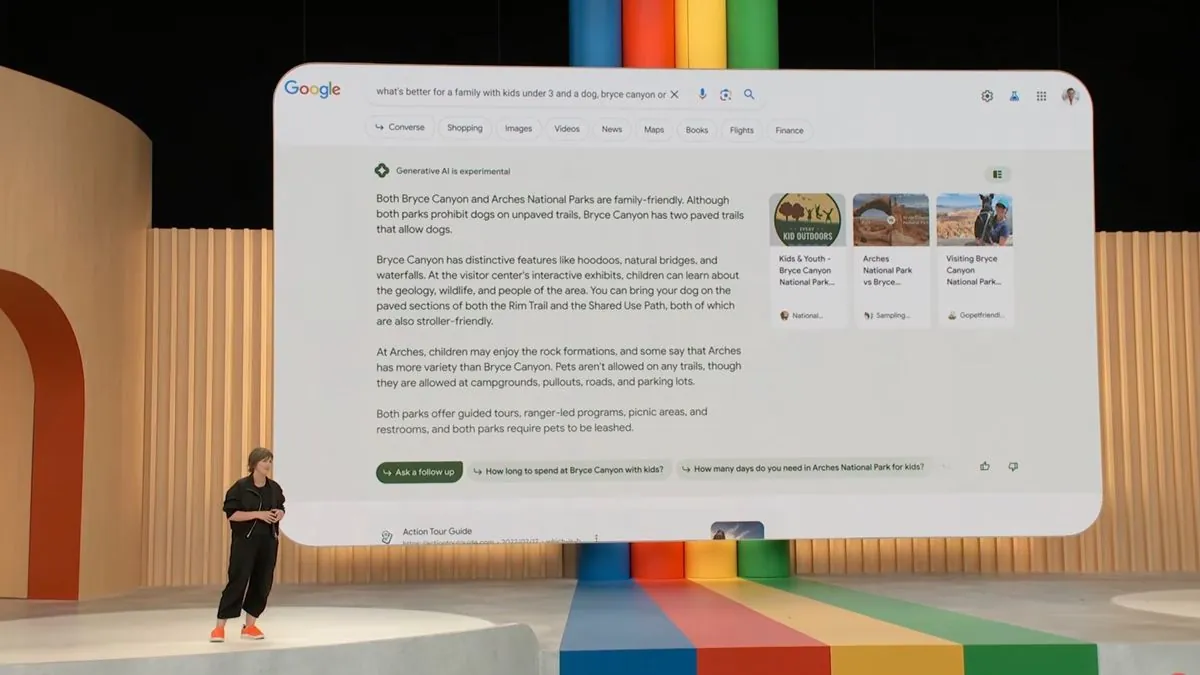Google's AI Overview: Reshaping Search and Raising Questions
Google's new AI-powered search feature sparks debate on information delivery and AI's role in shaping public opinion. As tech giants integrate AI, concerns grow about its impact on thinking and decision-making.

In recent weeks, users of Google's search engine have encountered a new feature: the "AI Overview." This addition, powered by Google's large language model Gemini, represents a significant shift in how information is presented to users. Instead of providing links to various sources, the AI Overview offers a synthesized response to queries, potentially altering the way people access and process information.
The introduction of AI-generated content in search results raises important questions about the role of technology in shaping public opinion and decision-making processes. Google, which has dominated the search market for over two decades, now wields even greater influence over information delivery. With a 96% share of the smartphone search market and 81% of desktop searches, the company's choices in presenting information have far-reaching consequences.

While Google claims to avoid providing AI-generated responses to "political" questions, the definition of what constitutes political content remains subjective. This ambiguity highlights the need for transparency and accountability in AI-driven information systems. For instance, searches on topics like working from home or smoking bans may yield AI-generated overviews that could potentially frame debates in specific ways.
The impact of AI-generated content extends beyond search engines. Recently, the UK government announced plans to incorporate AI tools in education for lesson planning and homework grading. In healthcare, Demis Hassabis, CEO of Google's DeepMind, has expressed optimism about AI's potential to revolutionize disease treatment within the next two decades.
"I think we could cure most diseases within the next decade or two if AI drug design works"
As AI technologies continue to evolve and integrate into various aspects of daily life, the need for effective regulation becomes increasingly apparent. The European Council has recently passed the first international treaty on AI, while the United Nations has proposed global governance for AI development. However, striking a balance between innovation and responsible development remains a challenge.
The rapid advancement of AI technologies calls for a broader public debate on their implications. While the UK government has advocated for a "principles-based" approach to AI regulation, some experts argue that attempting to regulate AI is akin to regulating mathematics. As one technology source noted, the goal should be to allow markets and innovation to flourish while ensuring that big tech companies engage with the public responsibly.
As AI continues to reshape our digital landscape, it is crucial for policymakers, tech companies, and the public to engage in meaningful discussions about its future direction. The integration of AI into search engines and other everyday tools may seem innocuous, but it has the potential to profoundly impact how we think, make decisions, and interact with information. By fostering open dialogue and promoting responsible AI development, we can work towards harnessing the benefits of this technology while mitigating potential risks to our cognitive autonomy and societal well-being.


































